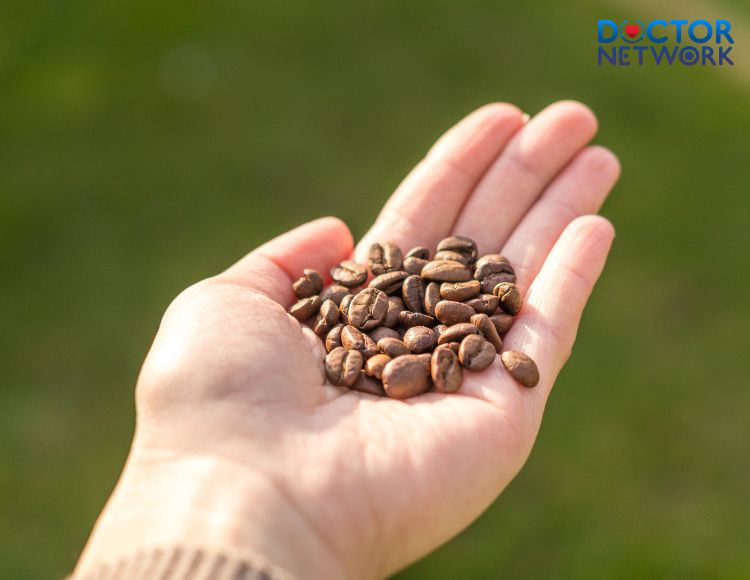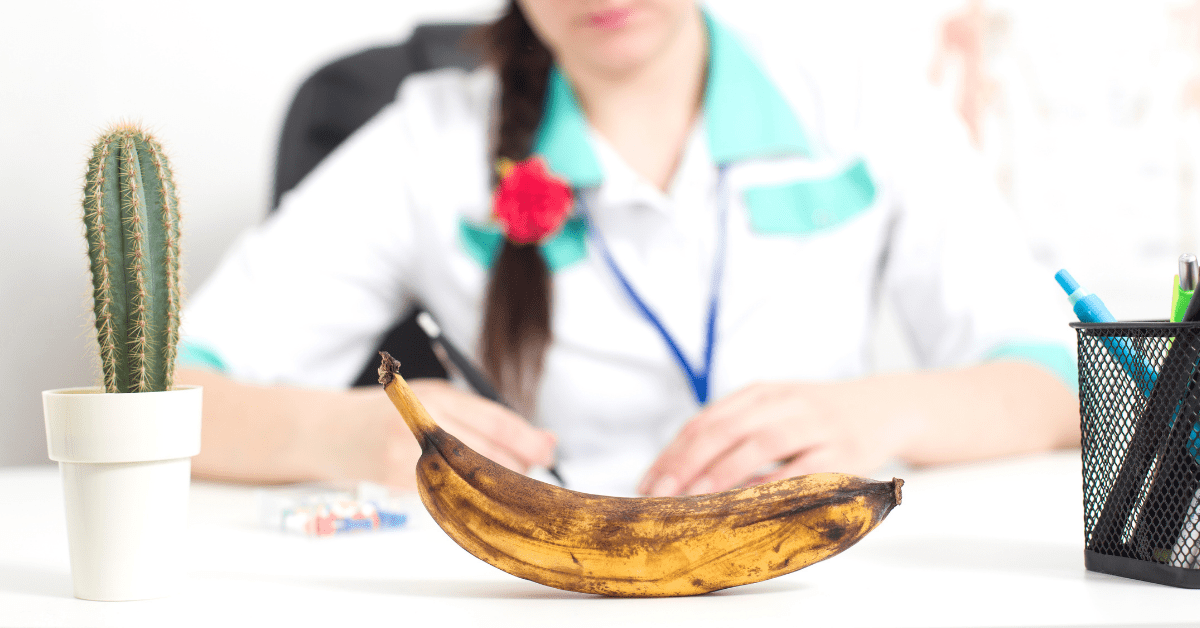Men’s reproductive health heavily relies on sperm quality. To assist in achieving healthy, resilient sperm with enhanced fertility potential, nutrition plays a crucial role. Therefore, What to Eat for Healthy Sperm? Let’s delve into the details in the following article!
Factors Affecting Sperm Quality
Before exploring foods that promote healthy sperm, men should understand several factors that negatively impact sperm quality:
- Unhealthy lifestyle habits: Smoking, alcohol consumption, substance abuse, and obesity.

Smoking, drinking alcohol, substance abuse, being overweight or obese affect sperm
- Exposure to toxins: Regular exposure to harmful chemicals, high temperatures, and radiation.
- Prolonged stress: Chronic stress and fatigue disrupt hormone balance, affecting reproductive function.
- Certain medications: Cancer treatments, antibiotics, antidepressants, etc.
- Medical conditions: Testicular diseases, urinary-tract infections, sexually transmitted infections.
Foods That Promote Healthy Sperm
A balanced diet rich in essential nutrients contributes to improved sperm health and enhances fertility chances.
Foods good for sperm – Zinc-rich foods: Zinc is crucial for sperm production. Zinc deficiency can lead to reduced sperm count, quality, and motility. Foods rich in zinc include:
Seafood (especially oysters, crabs, lobster) Red meat, poultry Whole grains Various nuts Foods rich in antioxidants – what to eat for healthy sperm: Antioxidants protect sperm from damage caused by free radicals. Prominent antioxidants include vitamin C, vitamin E, selenium, beta-carotene, and lycopene. Abundant sources include:
Citrus fruits, strawberries, kiwi, tomatoes Foods good for sperm – Dark leafy greens (spinach, kale) Various nuts (walnuts, almonds) Vegetable oils (olive oil) Foods containing folic acid (vitamin B9): Folic acid is essential for normal sperm development. Adequate folic acid intake promotes healthy sperm and reduces neural tube defects in fetuses. Foods rich in folic acid include:
Animal liver – what to eat for healthy sperm
Dark green leafy vegetables Beans, lentils Citrus fruits Foods containing
L-arginine: L-arginine is an amino acid that plays a role in nitric oxide production, which relaxes blood vessels and supports blood flow, including to reproductive organs.

What to eat for good sperm – Nuts
Some studies suggest that supplementing L-arginine benefits sperm quality.
Sources include:
Foods good for sperm – Red meat, poultry Various nuts
Foods good for sperm – Various nuts
Dairy products Healthy Meals for Sperm
Here are some delicious and nutritious meal suggestions for sperm health:
Grilled oysters with garlic butter Foods good for sperm – Shrimp avocado salad Pan-seared salmon Filet mignon with steamed broccoli Banana smoothie with walnuts
Expert Advice
In addition to knowing “what to eat for healthy sperm,” men should:
- Maintain a healthy lifestyle, exercise regularly, balance work and rest time.
- Limit or eliminate alcohol, tobacco use.
- Maintain a reasonable weight.
- Avoid tight underwear and prolonged sitting.
- Manage stress effectively.
- Manage stress effectively to improve sperm quality

Manage stress well to improve sperm quality
- Regularly check reproductive health.
Some Frequently Asked Questions About “What to Eat for Healthy Sperm”
Here are some related questions about “what to eat for healthy sperm”:
Apart from diet, what else should be considered for healthy sperm?
- Regular exercise: Moderate physical activity enhances blood circulation, improves overall health, and supports healthy sperm production.
- Maintain a healthy weight: Overweight and obesity increase the risk of hormonal disorders, negatively affecting sperm quality.
- Get enough sleep: Adequate sleep plays a crucial role in hormone production, including testosterone, essential for male reproductive health.
- Limit alcohol, tobacco: Using these substances harms sperm in terms of both quantity and motility.
- Avoid exposure to high temperatures: Avoid hot baths, hot tubs, steam rooms, or prolonged sitting positions.
- Reduce stress: Prolonged stress and anxiety are detrimental to overall health, including reproductive function.
Do vitamin supplements help improve sperm health?
Current research on synthetic vitamin effects on sperm quality remains inconclusive. However, supplementing specific nutrients may be beneficial in certain cases, such as:
- Zinc: If the diet does not provide sufficient zinc.
- Vitamin E, C: Supplements may be necessary if men consume few fruits and green vegetables.
- Folic acid: Essential for sperm development. Before using supplements, men should consult a specialist doctor.
Are there any foods to avoid to protect sperm?
- Processed foods, high sugar: These foods often contain trans fats, added sugars – components that increase the risk of obesity, insulin resistance, endocrine disorders, and negatively affect sperm quality.
- Soybeans and soy products: Some studies suggest a link between excessive soy consumption and decreased sperm count, but more research is needed on this issue.
- Alcohol: Regular alcohol consumption is harmful to overall health, including male reproductive health.
How long does it take to see improvement in sperm after changing diet?
The sperm production process takes about 70-90 days. Therefore, at least three months of balanced eating are needed to evaluate positive effects on sperm quality.
Can weak sperm achieve natural fertilization?
The natural fertilization potential of couples decreases when the man has weak sperm compared to normal. However, there are still opportunities for successful fertilization. Consulting a specialist in reproductive health will help assess specific conditions and provide optimal support for each case.
Scientific Evidence on “What to Eat for Healthy Sperm”
Here are some scientific references on “what to eat for healthy sperm”:
- A study published in the journal “Human Reproduction” showed that men following a Mediterranean diet had better sperm quality, including count, motility, and morphology.
- This diet includes fruits, vegetables, whole grains, fish, unsaturated fats, and various nuts, providing beneficial vitamins, minerals, and antioxidants for male reproductive health.
- A study of over 500 childless men found that those consuming more vitamin C had higher sperm counts and better motility.
- A study of 200 infertile men found that those supplementing folic acid had better sperm quality and higher fertility rates.
- A study of 100 infertile men found that those supplementing omega-3 had higher sperm counts and better motility.
A sensible, nutritionally balanced diet positively impacts sperm quality. Hopefully, this article has provided detailed insights into “what to eat for healthy sperm,” helping men choose suitable foods and meals to enhance reproductive health and improve chances of successful fertilization.
References:
https://www.uchicagomedicine.org/forefront/health-and-wellness-articles/2018/december/dont-make-the-mistake-of-letting-a-diet-kill-sperm
https://hsfc.org.uk/news/3-super-foods-increase-sperm-count
Kiểm Duyệt Nội Dung
More than 10 years of marketing communications experience in the medical and health field.
Successfully deployed marketing communication activities, content development and social networking channels for hospital partners, clinics, doctors and medical professionals across the country.
More than 6 years of experience in organizing and producing leading prestigious medical programs in Vietnam, in collaboration with Ho Chi Minh City Television (HTV). Typical programs include Nhật Ký Blouse Trắng, Bác Sĩ Nói Gì, Alo Bác Sĩ Nghe, Nhật Ký Hạnh Phúc, Vui Khỏe Cùng Con, Bác Sỹ Mẹ, v.v.
Comprehensive cooperation with hundreds of hospitals and clinics, thousands of doctors and medical experts to join hands in building a medical content and service platform on the Doctor Network application.

























